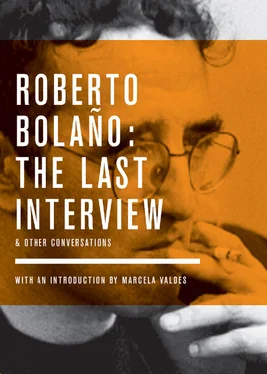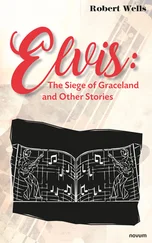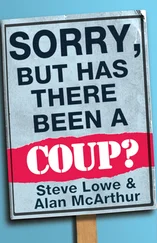CB:Women writers are constantly annoyed by this question, but I can’t help inflicting it on you — if only because after being asked it so many times, I regard it as an inevitable, though unpleasant ritual: How much autobiographical material is there in your work? To what extent is it a self-portrait?
RB:A self-portrait? Not much. A self-portrait requires a certain kind of ego, a willingness to look at yourself over and over again, a manifest interest in what you are or have been. Literature is full of autobiographies, some very good, but self-portraits tend to be very bad, including self-portraits in poetry, which at first would seem to be a more suitable genre for self-portraiture than prose. Is my work autobiographical? In a sense, how could it not be? Every work, including the epic, is in some way autobiographical. In the Iliad we consider the destiny of two alliances, of a city, of two armies, but we also consider the destiny of Achilles and Priam and Hector, and all these characters, these individual voices, reflect the voice, the solitude, of the author.
CB:When we were young poets, teenagers, and shared the same city (Mexico City in the seventies), you were the leader of a group of poets, the Infrarealists, which you’ve mythologized in your novel The Savage Detectives . Tell us a little about what poetry meant for the Infrarealists, about the Mexico City of the Infrarealists.
RB:Infrarealism was a kind of Dada á la Mexicana. At one point there were many people, not only poets, but also painters and especially loafers and hangers-on, who considered themselves Infrarealists. Actually there were only two members, Mario Santiagoand me. We both went to Europe in 1977. One night, in Rosellón, France, at the Port-Vendres train station (which is very close to Perpignan), after having suffered a few disastrous adventures, we decided that the movement, such as it was, had come to an end.
A poet and old friend of Bolaño’s, Mario Santiago (1953–1998) was a member of Bolaño’s inner circle and one of the founding members, along with Bolaño and others, of the infrarrelismo movement of the 1970s. Bolaño immortalized Santiago in The Savage Detectives as the Visceral Realist Ulises Lima.
CB:Maybe it ended for you, but it remained vividly alive in our memories. Both of you were the terrors of the literary world. Back then I was part of a solemn, serious crowd — my world was so disjointed and shapeless that I needed something secure to hold onto. I liked the ceremonial nature of poetry readings and receptions, those absurd events full of rituals that I more or less adhered to, and you were the disrupters of these gatherings. Before my first poetry reading in Gandhi bookstore, way back in 1974, I prayed to God — not that I really believed in God, but I needed someone to call upon — and begged: Please, don’t let the Infrarealists come. I was terrified to read in public, but the anxiety that arose from my shyness was nothing compared to the panic I felt at the thought that I’d be ridiculed: Halfway through the reading, the Infras might burst in and call me an idiot. You were there to convince the literary world that we shouldn’t take ourselves so seriously over work that wasn’t legitimately serious — and that with poetry (to contradict your Chilean saying) the precise point was to throw yourself off a precipice. But let me return to Bolaño and his work. You specialize in narratives — I can’t imagine anyone calling your novels “lyrical”—and yet you’re also a poet, an active poet. How do you reconcile the two?
RB: Nicanor Parrasays that the best novels are written in meter. And Harold Bloom says that the best poetry of the twentieth century is written in prose. I agree with both. But on the other hand I find it difficult to consider myself an active poet. My understanding is that an active poet is someone who writes poems. I sent my most recent ones to you and I’m afraid they’re terrible, although of course, out of kindness and consideration, you lied. I don’t know. There’s something about poetry. Whatever the case, the important thing is to keep reading it. That’s more important than writing it, don’t you think? The truth is, reading is always more important than writing.
A Chilean poet born in 1914, Nicanor Parra greatly influenced Bolaño’s poetry and early fiction writings. Considered modernist, Parra’s language resembles the much later work of the American Beat poets. Bolaño considered him “the best living Spanish language poet.” A collection of his work Anti-poems: How to Look Better & Feel Great is available in English.
III. “POSITIONS ARE POSITIONS AND SEX IS SEX”. INTERVIEW BY ELISEO ÁLVAREZ
FIRST PUBLISHED IN TURIA ,
BARCELONA, JUNE 2005
ELISEO ÁLVAREZ:Did your parents influence your love of literature, books?
ROBERTO BOLAÑO:No. In terms of genealogy, the truth is I come from two families: one that dragged with it 500 years of constant and rigorous illiteracy and the other, maternal, that dragged with it 300 years of laziness, just as constant and as rigorous. In that sense I’m the black sheep of the family. I suppose that they would have preferred any other thing. The truth is I’m fifty years old and knowing what I know now I wouldn’t want my child to be a writer either. That isn’t to say I would want him to continue with 500 more years of illiteracy, but why not 300 more years of laziness? It’s quite hard to be a writer, although, let’s not exaggerate. My mother read some books, and my father read Westerns occasionally. He read those little novels that are made to keep in your back pocket, because there was no television. My mother did read more, but if I had formed my mother’s tastes I’d be a Marcelo Serrano-or Isabel Allende-type today. On the other hand, that wouldn’t be so bad because I wouldn’t have known the troubles of a writer but I would have known sweet millions, which seen with perspective is not a bad exit.
Chilean author Marcela Serrano (b. 1951) is a standard bearer of new Latin American fiction. Her major works include Nosotras que nos queremos tanto (1991) and Para que no me olvides (1994). Her translated works include Antigua and My Life Before (2001).
Perhaps the most famous female Chilean author, Isabel Allende (b. 1942) is an extremely prolific part of the magical realism movement. Bolaño considered her work “bad, but it’s alive. It’s anemic, like many Latin American authors, but it’s alive.” Her major works have been translated into English and include The House of Spirits (1982) and Paula (1995).
EA:It would be ideal to get a mix of both.
RB:I think a good mix is very difficult to obtain, especially for people of my generation, because we were very radical and we believed the sooner we got to the limit the better, and that’s how it went for us.
EA:How did you discover reading?
RB:Surely because I was a very sensible kid, a very sensible adolescent. My father was a courier. He was also a professional heavyweight boxing champion in southern Chile. The only thing fit to do before that man was to be stronger than him — otherwise it was to opt for homosexuality. If he had depended on me, I would have opted for homosexuality, which seems to me a magnificent aesthetic escape, but it wouldn’t have been natural. I’m heterosexual. So all that was left was film and books, and from childhood I dedicated myself to watching lots of film and reading lots of books basically and, evidently, trying to kill my father. Of course my father has always loved me very much, like all fathers. Now my son intends to kill me. I’ll be the first to tell him: Kill me, son. Here is my neck. It’s like the joke about the Jewish mother: In a fit of madness, the son cuts off his mother’s head, flees, then stumbles, and while he’s stumbling — with his mother’s head still in his arms — the head says, “Son, are you all right?” A father’s love for his son is similar. I suppose that within his brutality and his courage — he is a very courageous man — my father loved me as I love my son. In the end, one could talk for hours about the relationship between a father and a son. The only clear thing is that a father has to be willing to be spat upon by his son as many times as the son wishes to do it. Even still the father will not have paid a tenth of what he owes because the son never asked to be born. If you brought him into this world, the least you can do is put up with whatever insult he wants to offer.
Читать дальше












